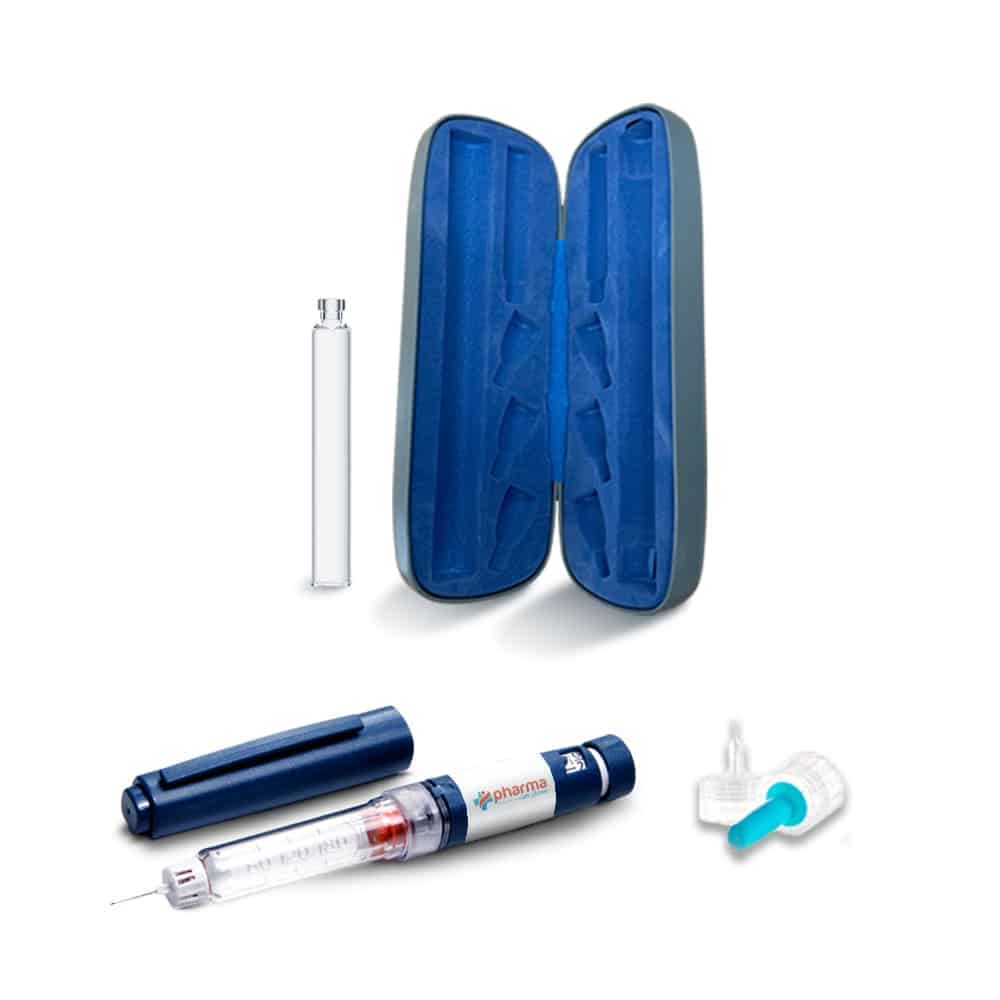(£)
GBP (Default)
- ($) USD
- (€) EUR
- ($) AUD
- ($) CAD
- ($) NZD
15% off first order with code: 1storder
99%+ Quality Guaranteed
Pay by crypto get 10% discount
Shipping Protection
Fast Order Process
15% off first order with code: 1storder

Insulin-like Growth Factor-1 (IGF-1) is a hormone that plays a crucial role in the growth and development of the body. It is naturally produced in the liver and released in response to the stimulation of Growth Hormone (GH). This hormone is essential for cell growth, tissue repair, and muscle hypertrophy.
IGF-1 hormone is a peptide hormone that consists of 70 amino acids and is structurally similar to insulin. It is synthesized in the liver and released into the bloodstream in response to the stimulation of GH. The main function of IGF-1 is to promote cell growth, tissue repair, and muscle hypertrophy. It also plays a role in regulating blood sugar levels by increasing the uptake of glucose by cells.
A low IGF-1 level in elderly people is associated to both weakness and an increased risk of illness. Maintaining adequate levels of Insulin-like Growth Factor-1 throughout later life is essential to the preservation of bone density, muscular mass, and cognitive function.
For the most part of our adult lives, we should strive to keep our levels of insulin-like growth factor 1 relatively low. When we reach our eighties and beyond, we should increase the amount of protein we eat so that our IGF-1 does not become dangerously low. This will allow us to live longer.
To maintain healthy levels of insulin-like growth factor 1 throughout our lives, it is critical that we pay close attention to the foods we eat.
IGF-1 is a cell growth promoter that is essential during childhood because of its role in the development of the brain as well as the growth of the muscles and bones. Levels are at their highest throughout our teenage and early adult years, and then begin to gradually decrease as we get older. Growth hormone, or GH, is secreted by the pituitary gland and stimulates the creation of IGF-1 in the liver.
IGF-1 has become increasingly popular in the world of athletics due to its potential to improve muscle growth and strength. However, IGF-1 is a banned substance in most professional sports leagues and organizations due to its performance-enhancing properties.
IGF-1 levels naturally decrease as we age, leading to a decline in muscle mass, bone density, and overall physical function. Many researchers believe that increasing levels through supplementation could help delay the aging process and improve overall health in older individuals.
IGF-1 is a powerful hormone with both benefits and drawbacks. While it can improve muscle growth, bone density, and overall physical function, it also comes with potential risks such as cancer growth and hypoglycemia.
References:
[1] https://pubmed.ncbi.nlm.nih.gov/ 10605625/
[2] Adipose tissue-derived stem cell secreted IGF-1 protects myoblasts from the negative effect of myostatin – PubMed (nih.gov)
DISCLAIMER: All products sold by Pharma Lab Global are for in-vitro research and laboratory use only. These products are not designed for use or consumption by humans or animals. Nothing on this Website is intended to diagnose, heal, treat, cure, mitigate or prevent disease. By purchasing from our Website the buyer accepts and acknowledges the risks involved with consumption and handling of these products. All articles and product information provided on this Website are for informational and educational purposes only. All products are to be handled by qualified and properly trained research or laboratory professionals only.
TO PURCHASE PRODUCTS FROM OUR WEBSITE YOU MUST BE AT LEAST 21 YEARS OF AGE.
DISCLAIMER: All products sold by Pharma Lab Global are for in-vitro research and laboratory use only. These products are not designed for use or consumption by humans or animals. Nothing on this Website is intended to diagnose, heal, treat, cure, mitigate or prevent disease. By purchasing from our Website the buyer accepts and acknowledges the risks involved with consumption and handling of these products. All articles and product information provided on this Website are for informational and educational purposes only. All products are to be handled by qualified and properly trained research or laboratory professionals only.
